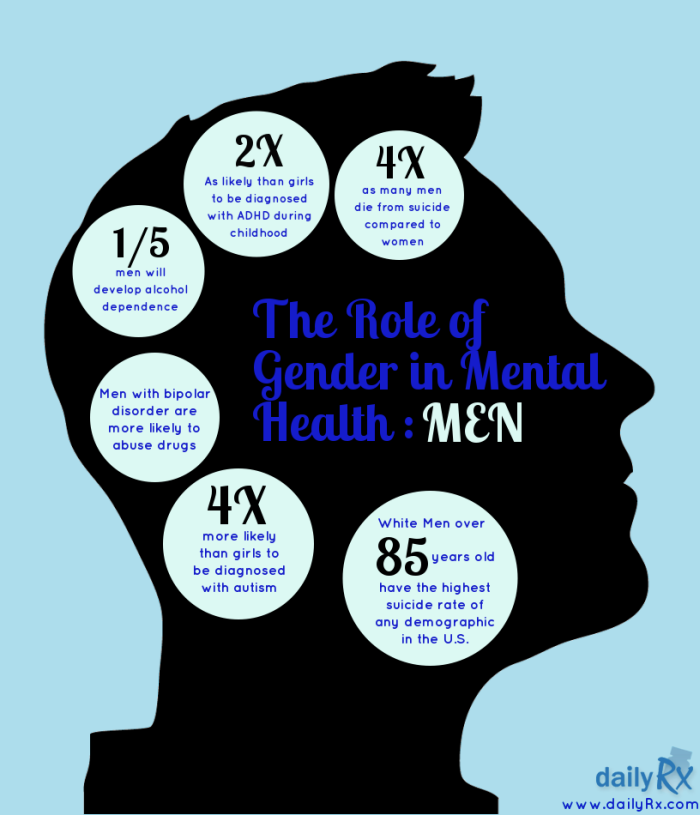Starting over after an abusive relationship
Why People Stay in an Abusive Relationship
Abusive relationships are extremely complex situations and it takes a lot of courage to leave. Abuse is about power and control. When a survivor leaves their abusive relationship, they threaten the power and control their partner has established over the survivor’s agency, which may cause the partner to retaliate in harmful ways.
As a result, leaving is often the most dangerous period of time for survivors of abuse.
Fear
A person will likely be afraid of the consequences if they decide to leave their relationship, either out of fear of their partner’s actions or concern over their own ability to be independent.
Normalized abuse
If someone grew up in an environment where abuse was common, they may not know what healthy relationships look like. As a result, they may not recognize that their partner’s behaviors are unhealthy or abusive.
Shame
It can be difficult for someone to admit that they’ve been or are being abused. They may feel that they’ve done something wrong, that they deserve the abuse, or that experiencing abuse is a sign of weakness. Remember that blame-shifting is a common tactic that their partner may use and can reinforce a sense of responsibility for their partner’s abusive behaviors.
Intimidation
A survivor may be intimidated into staying in a relationship by verbal or physical threats, or threats to spread information, including secrets or confidential details (i.e. revenge porn etc). For LGBTQ+ people who haven’t come out yet, threats to out someone may be an opportunity for abusive partners to exert control.
Low self-esteem
After experiencing verbal abuse or blame for physical abuse, it can be easy for survivors to believe those sentiments and believe that they’re at fault for their partner’s abusive behaviors.
Lack of resources
Survivors may be financially dependent on their abusive partner or have previously been denied opportunities to work, a place to sleep on their own, language assistance, or a network to turn to during moments of crisis.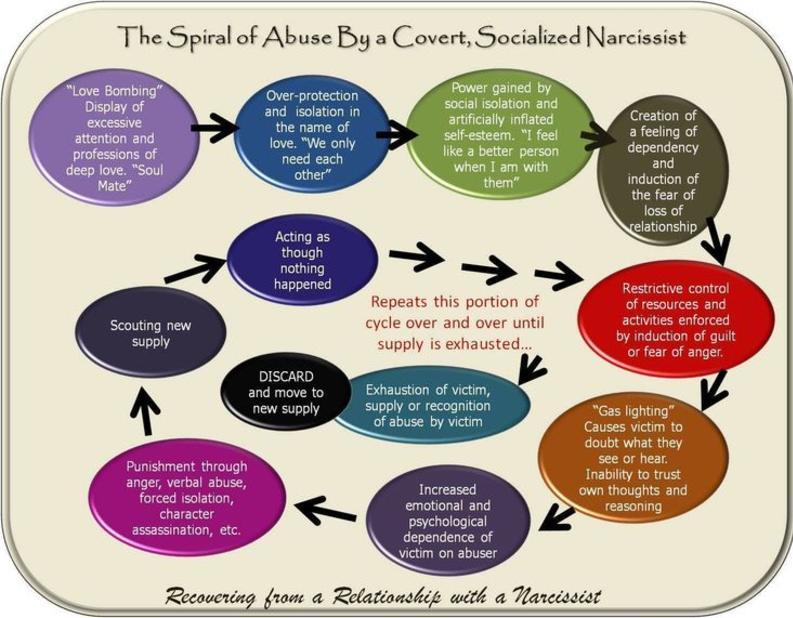 These factors can make it seem impossible for someone to leave an abusive situation.
These factors can make it seem impossible for someone to leave an abusive situation.
Disability
If someone depends on other people for physical support, they may feel that their well-being is directly tied to their relationship; a lack of visible alternatives for support can heavily influence someone’s decision to stay in an abusive relationship if they have a disability.
Immigration status
People who are undocumented may fear that reporting abuse will affect their immigration status. If they have limited English proficiency, these concerns can be amplified by a confusing and convoluted legal system and an inability to express their circumstances to others.
Cultural context
Traditional customs or beliefs may influence someone’s decision to stay in an abusive situation, whether held by the survivor or by their family and community. Learn more about abuse in different cultural contexts.
Children
Many survivors may feel guilty or responsible for disrupting their familial unit.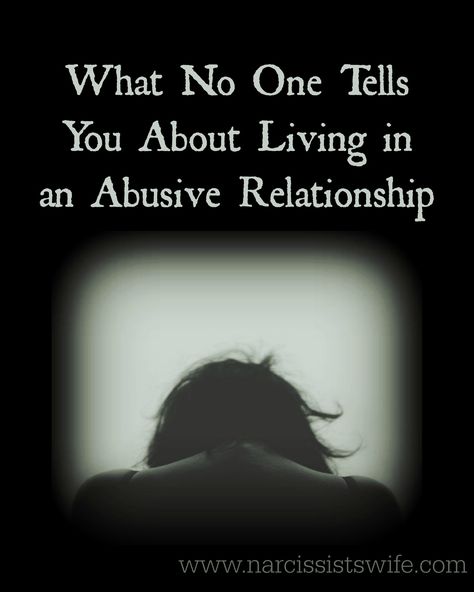 Keeping the family together may not only be something that a survivor may value, but may also be used as a tactic by their partner used to guilt a survivor into staying.
Keeping the family together may not only be something that a survivor may value, but may also be used as a tactic by their partner used to guilt a survivor into staying.
Love
Experiencing abuse and feeling genuine care for a partner who is causing harm are not mutually exclusive. Survivors often still have strong, intimate feelings for their abusive partner. They may have children together, want to maintain their family, or the person abusing them may simply be charming (especially at the beginning of a relationship) and the survivor may hope that their partner will return to being that person.
No matter the reason, leaving any relationship can be difficult; doing so in an abusive situation can feel impossible without the right access to support.
a quote mark iconUnderstanding the various ways that abuse appears and intersects can prepare you to respond to situations safely for yourself and others.
How to Heal After an Abusive Relationship: 7 Tips
Recovering from an abusive relationship is possible.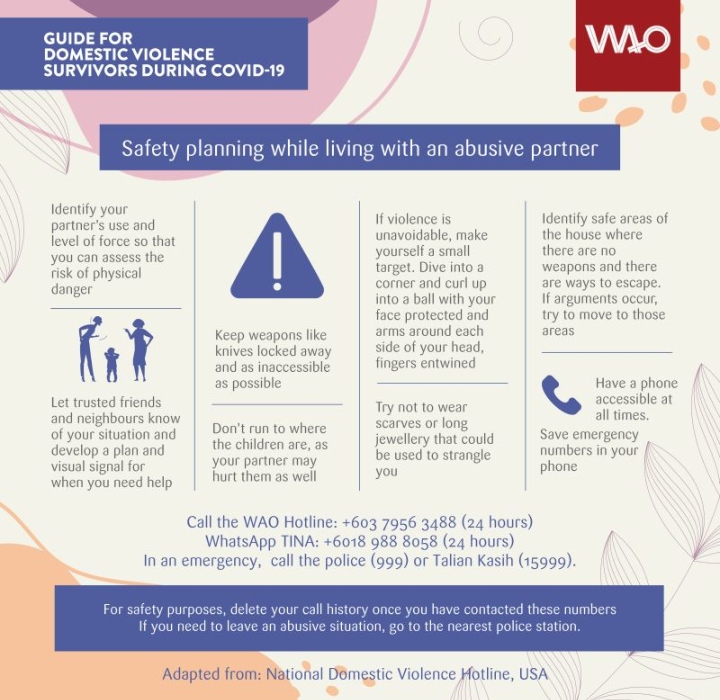 Here are helpful steps on how to heal and prioritize your well-being in the process.
Here are helpful steps on how to heal and prioritize your well-being in the process.
If you’ve recently left an abusive relationship, you’ve already taken one of the most important steps of the process — leaving.
Learning how to heal and take care of yourself after the breakup can help you navigate what comes next.
There are many types of abusive situations and relationships:
- emotional
- physical
- verbal
- sexual
- spiritual
- financial (e.g. limiting access to funds, controlling shared finances)
- reproductive coercion (e.g. breaking condoms, interfering with birth control access)
- digital (e.g. stalking, demanding passwords or access to your phone)
A range of intense emotions may pop up when recovering from an abusive relationship — all of which are valid.
Depending on the situation, you may experience some of the following thoughts or feelings:
- missing your ex
- feeling lonely or isolated
- debating going back to the relationship
- feeling uncertain or unable to make decisions by yourself
- feelings of anxiety or depression
- finding it difficult to feel independent
- a lingering fear or sense of being in danger
- symptoms of post-traumatic stress disorder (PTSD)
You may have positive feelings, too.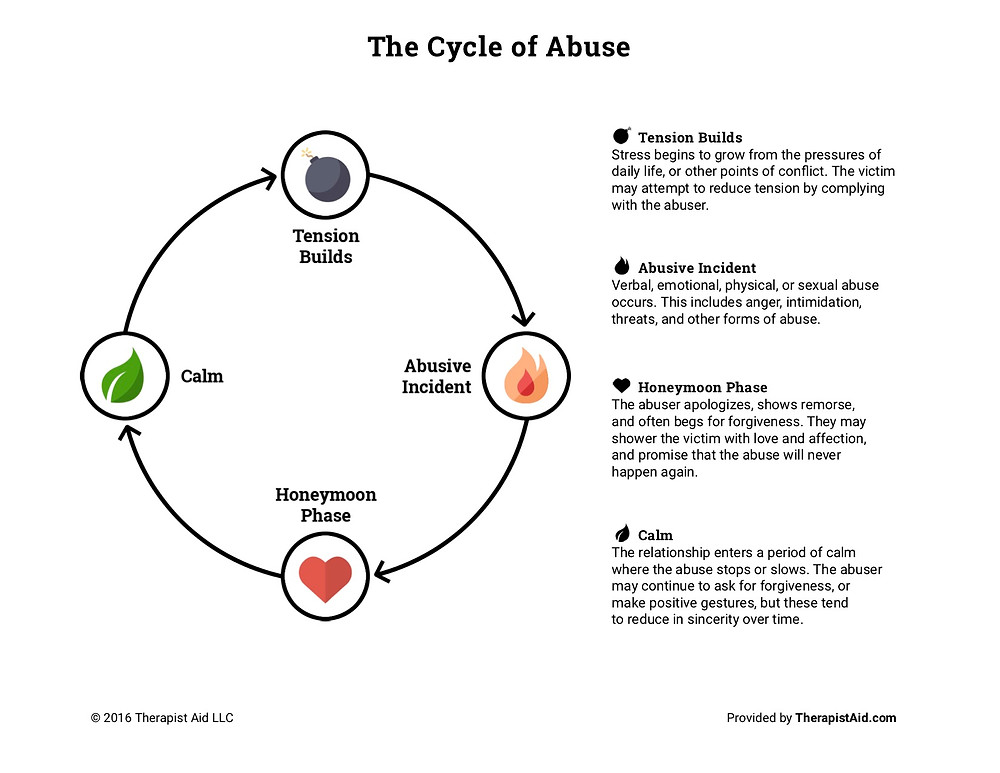 “Sometimes a survivor can feel a sense of freedom, as if a weight has been lifted off of their shoulders,” says Melody Gross, domestic violence keynote speaker and founder of Courageous SHIFT.
“Sometimes a survivor can feel a sense of freedom, as if a weight has been lifted off of their shoulders,” says Melody Gross, domestic violence keynote speaker and founder of Courageous SHIFT.
“Some days, you might feel strong, happy, and confident in your decision. Other days you may be overwhelmed by sadness and anxiety and question everything,” adds Ebele Onyema, director of programs at One Love. “All of these feelings, from feeling free and empowered to feeling lonely and missing your ex, are completely normal.”
“When someone leaves an abusive relationship, healing isn’t necessarily the first thing that comes to mind. Survival does,” says Gross.
There’s no set time frame to healing, as each survivor’s experience is different.
“But what is there is possibility — the possibility to get to a place where you know, understand, and can respond appropriately to your triggers,” she adds.
The healing process isn’t linear, but there are ways to find relief and support along the way.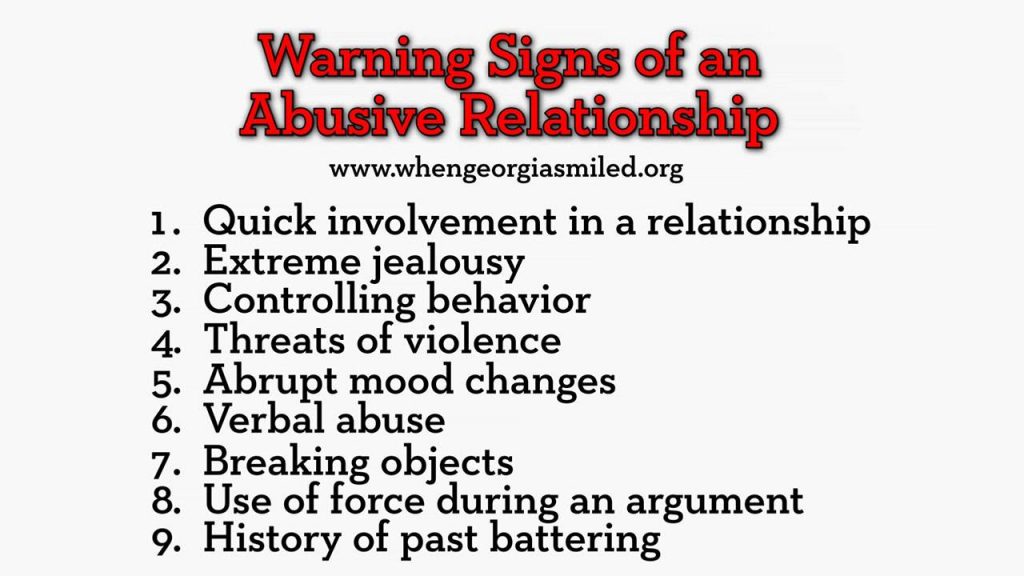
Create a safety plan (if you haven’t already)
Safety planning can give you a sense of control and protection, Gross explains: “You can add responses for different circumstances, such as seeing [your ex] in public or if they contact you on social media.”
“Make your safety and security the top priority post-breakup, so you can focus on yourself and your healing journey,” says Onyema.
Set boundaries
According to Onyema, setting boundaries after the relationship is just as important as during it.
“Make sure you and your ex are on the same page in terms of communication and behavior,” she says. “And, if you [aren’t] — and you very well may not be — remember that your needs and boundaries matter. Be clear in expressing them and confident that you have every right to need the time and space that you need.”
Also consider setting digital boundaries, like blocking your ex or taking a social media break.
“Knowing that your partner doesn’t have access to you on social media can provide the distance you might need to move through healing at your own pace,” she adds.
Prioritize self-care and self-love
“Self-care and self-love is vital because without them, survivors can find themselves in another abusive relationship,” says Gross.
Honor your thoughts and feelings as they come up. She suggests journaling as a great way to process your emotions. It can serve as a personal safe space and way to reflect on your growth as time passes.
Onyema also recommends picking up old hobbies and doing things you used to love.
“Use your newfound time to focus on things that build your confidence and help you regain emotional balance. You deserve it,” she says.
Repeat healing affirmations
Gross says to keep reminding yourself that the abuse was never your fault: “If you have to set an alarm on your phone or write it on a Post-It note, do it.”
“It can be hard not to look back on your past relationship with rose-colored glasses, or you may feel like you miss your ex-partner, but keep in mind that you’re strong, and you’ll get through it,” adds Onyema. “Remember that everyone — including you — deserves a healthy relationship where they feel loved, respected, and valued.”
“Remember that everyone — including you — deserves a healthy relationship where they feel loved, respected, and valued.”
Educate yourself about abuse
No matter where you are in your journey, learning about abuse can prevent you from entering similar situations in the future.
Gross recommends learning about:
- signs of abuse
- why people fall in love with abusive partners
- reasons people stay in ‘unhealthy’ relationships
- potential barriers to leaving
- how abuse shows up in different areas of life
“When everyone has a better understanding and knowledge of how intimate partner violence works, then we can remove the stigma and get the support and services needed for survivors and perpetrators,” she says.
Build a strong support system
You don’t have to do this alone. Receiving support can help you feel stronger and more connected during the healing process.
“A great support system can include family, friends, a therapist, coach, personal trainer, [and] support group,” says Gross.
Oftentimes, Onyema says someone in an abusive relationship can be isolated from friends and family. “It’s good to reconnect with them. [They] can emotionally support you, build up your sense of self, and offer a counter to some of the doubts or negative thoughts we can have about ourselves after a breakup.”
Ask for help
Consider seeing a therapist or mental health professional. Therapy can teach you helpful skills for coping after an abusive relationship and offer further support during the recovery process.
Other support resources are available, including:
- domestic violence hotlines
- organizations like One Love
- events and programs for survivors
- connecting with other survivors through support groups
“Don’t let shame or embarrassment stop you from getting your needs met,” reminds Gross, who suggests tapping into every resource you can.
According to the Centers for Disease Control and Prevention (CDC), intimate partner violence affects millions of people in the United States each year. If you’ve recently been in an abusive relationship, you’re not alone and it’s not your fault.
If you’ve recently been in an abusive relationship, you’re not alone and it’s not your fault.
There’s no solid answer as to how long it takes to heal after any type of abusive relationship. But creating a safety plan, practicing self-love, seeing a therapist, setting boundaries, joining support groups, and seeking additional resources can bring you relief.
“Breakups aren’t easy. Be patient and kind to yourself, as there’s no ‘right way’ to heal,” Onyema says. Healing is possible, though, and you will feel stronger in time.
You’re a survivor, and help is readily available whenever you want or need it.
“You made the first brave step — you decided to leave,” she reminds. “And as you continue to center yourself, you’re healing in big and small ways every step of the way.”
Need to Run: 22 Signs You're Dating an Abuser
In relationships, we seek love, care, and acceptance. But some people don't need it. They want only one thing: complete control over their partner.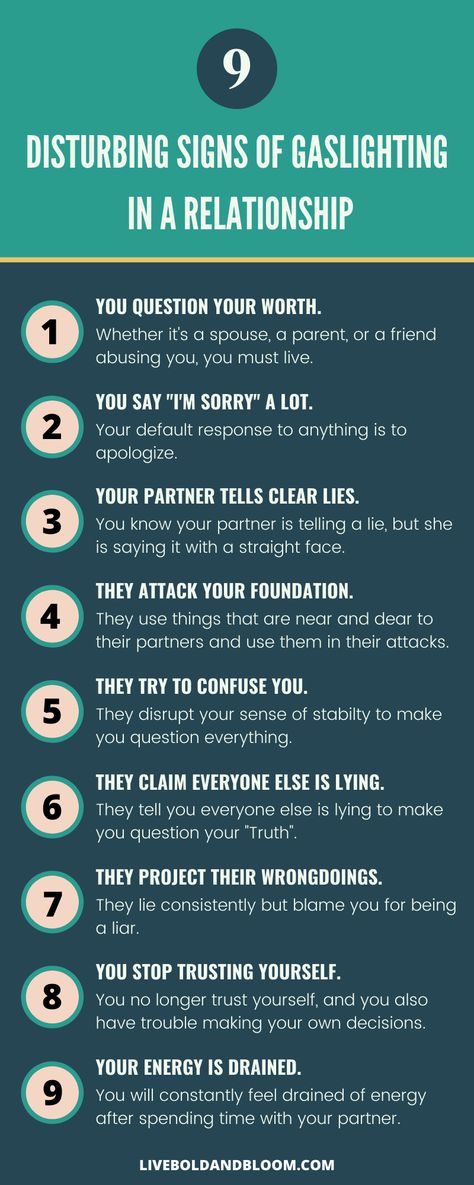 And they achieve this in all possible ways - from subtle manipulations to threats, harassment and beatings.
And they achieve this in all possible ways - from subtle manipulations to threats, harassment and beatings.
Psychologists call such people abusers (from English abuse - violence, abuse). The consequences of a relationship with such a partner can be catastrophic. These are mental disorders (insomnia, depression, anxiety and post-traumatic stress disorder), physical injury, or even death if the aggressor has turned to physical violence.
The best way to protect yourself from this is to recognize such a person in time and cut off any relationship with him. Here are the phrases and actions that betray the abuser.
What signals should not be ignored
Humiliation and criticism
The aggressor will definitely try to undermine your self-esteem. And here's how he'll do it.
1. “You are my little pig…”
At first, the abuser will not openly insult the victim, otherwise she will be indignant and off the hook. Therefore, he will present insults as something natural or even funny. He will not miss the opportunity to call his partner stupid, a loser, or even worse. If in response the victim is indignant, she is told that “I love it” and “you don’t understand jokes at all.”
He will not miss the opportunity to call his partner stupid, a loser, or even worse. If in response the victim is indignant, she is told that “I love it” and “you don’t understand jokes at all.”
This also includes seemingly cute, but in fact offensive nicknames like “my pampushka”, “piggy”, “fool”. As a result, the victim gets used to such humiliating language in his address and begins to think that she is really stupid, fat and that she will not succeed.
2. “You are always…”
Anything can go on: you are late, you stumble, you make mistakes, you ruin everything. Such remarks are accompanied by poking and eye rolling, and after that the abuser will definitely say something like this: “It's good that you have me. What would you do without me." Hearing something like this regularly, the victim sooner or later comes to the conclusion that she is really useless and cannot cope without her “savior”.
3. “No problem, they are our friends!”
The aggressor can easily subject the victim to public humiliation.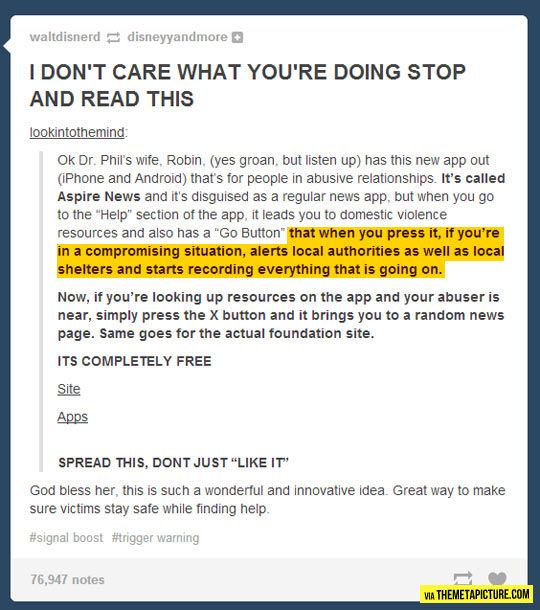 For example, rudely play a trick on her in the presence of acquaintances or make fun of her awkwardness. To all claims, he will say that there is nothing of the kind in this, and since everyone is funny, then she should be funny too.
For example, rudely play a trick on her in the presence of acquaintances or make fun of her awkwardness. To all claims, he will say that there is nothing of the kind in this, and since everyone is funny, then she should be funny too.
4. “Are you going to the circus with that make-up on? Come on, it's just a joke!"
Harsh sarcasm, silly jokes that are actually insults wrapped in third-rate humor are all that abusers love to use to destabilize the victim and make them feel worthless. If she starts to resent, she will definitely hear that she understood everything wrong and, in general, one cannot be so vulnerable.
5. “Others your age are already making millions.”
No achievement impresses an abuser.
- Got a promotion at work? A little late, of course, but nothing, for you, and this is commendable.
- Got a prize at an important competition? And what are you rejoicing about, this is not a victory.
- Did you manage to pay off your mortgage early? Surely your parents helped you.
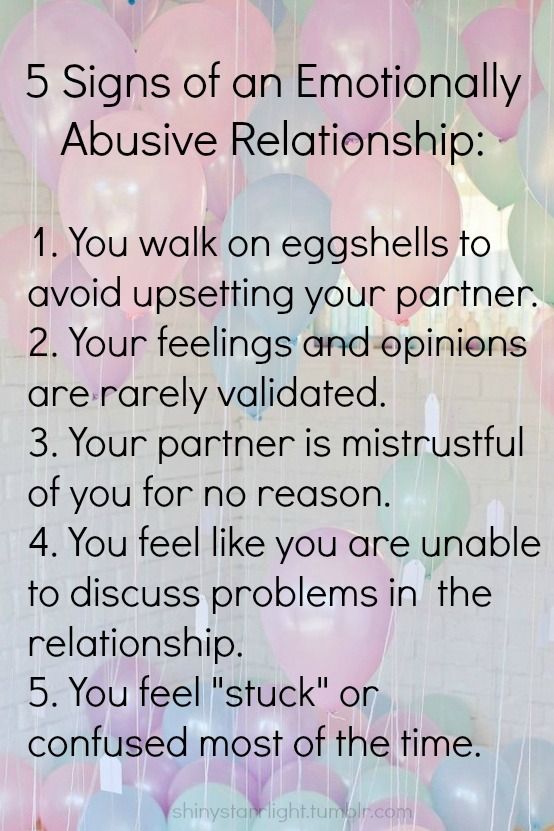
After such statements, a person, of course, is no longer happy and thinks that his achievements are really ridiculous and mean nothing.
6. "Don't waste your time on this bullshit!"
If the victim has an infatuation, the abuser will not miss the opportunity to ridicule him in every possible way. Because his task is to deprive the victim of his own life and interests, so that she spends time and energy only on him.
Control
Abusers use any technique to subdue their partner, deprive him of his will and make him feel shame for any wrongdoing - real or imagined.
7. “Where are you? Why don't you pick up the phone right away?"
The toxic partner tends to track every step of his victim. He requires her to report on her affairs and movements, annoys her with calls and messages. Can put on the phone programs that control the location. Can follow the victim personally. In a word, he does everything so that the “toy” does not run away and gets used to feeling on a short leash.![]()
8. “Yes, I read messages on your phone. And what is it?
Abusers without a twinge of conscience can conduct digital surveillance of their victim. Read messages in social networks and messengers, listen to the phone, check the browser history. In some cases, they even demand to provide them with passwords and invade the privacy of the victim quite openly.
9. “It's common money. Should I have asked?"
Emotional abusers do not consider it necessary to take into account the opinion of their victim and make decisions unilaterally. They can carry out some operations with common money behind the partner’s back. They can cancel an appointment for another doctor, refuse an invitation to a holiday, express dissatisfaction with the boss because the victim spends too much time at work. In a word, they behave as if half of them have no rights.
10. “No, I won't give you money. You will spend it on nonsense again.”
Financial violence is one of the favorite levers of aggressors.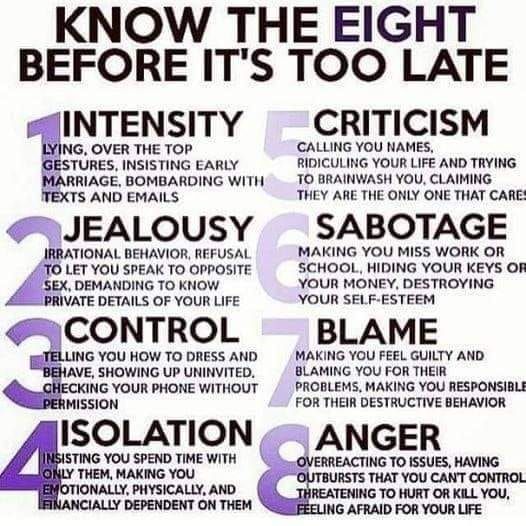 If the victim does not have his own income (unemployed, housewife, mother on maternity leave), they begin to reproach her with money, deprive her of finances for “wrongdoings” or give out tiny sums that are really not enough for anything.
If the victim does not have his own income (unemployed, housewife, mother on maternity leave), they begin to reproach her with money, deprive her of finances for “wrongdoings” or give out tiny sums that are really not enough for anything.
But even if we are talking about a working and financially independent person, the abuser will still find how to leave him without funds. Put all the money in his account or stop paying the general mortgage. He will simply take everything he has earned, saying that the partner does not know how to handle money, and will force him to account for every ruble spent.
11. “Where is my supper? Bring it now!"
At first, abusers often seem nice and harmless, but at some point they may begin to communicate exclusively in an orderly tone. Do this, give that, go and buy it immediately, don't take those drugs anymore. Unquestioning obedience is expected from the victim, completely uninterested in her opinion and needs.
12. “Again you drive me crazy!”
Outbursts of anger - unpredictable and completely incommensurable with the actions that cause them - are a characteristic feature of the behavior of manipulators. A person who has been in contact with such a partner for a long time begins to be afraid and literally walks along the line so as not to provoke another explosion. Because screaming, assault or pogroms can start at any moment - it is enough to return home later than usual or not wash the dishes.
A person who has been in contact with such a partner for a long time begins to be afraid and literally walks along the line so as not to provoke another explosion. Because screaming, assault or pogroms can start at any moment - it is enough to return home later than usual or not wash the dishes.
13. “You won’t succeed, let me be better”
Abusers behave as if the victim is not an adult, but a small child who can and should be told what to wear, where to go, who to be friends with, what to do . The opinion of the other party is not taken into account. Such a dictatorship is often served under the sauce of caring. The task is to deprive a person of independence and make him believe that he himself is not capable of anything.
What is taught at women's trainings
Personal experience: how debt makes life hell
8 types of teachers you should not trust
Someone else's body is none of your business.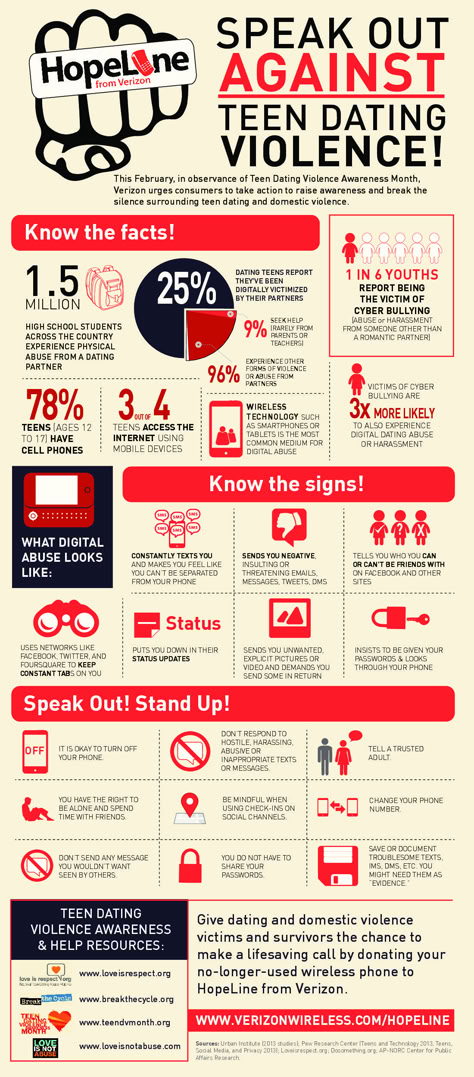 Why people have the right to look the way they want
Why people have the right to look the way they want
8 types of people who do not value other people's time and are incredibly annoying
10 tricks of scammers that even smart people fall for
Instilling guilt
Guilt is an excellent lever, with the help which is very easy to manipulate. And abusers know this very well.
14. “I can see you are flirting!”
An abuser's victim may turn out to be unfaithful at any time, even if she herself does not know it. Did you smile at the waitress? He must have been trying to play. Did you go to a corporate party in a beautiful dress? Well, everything is clear, this is only for the men from the office to stare.
A "traitor" can be followed, he will be forced to make excuses for every look, sigh or smile, for every minute of being late - as if the truth is somehow to blame. And this is not to mention the screams, scandals and ugly scenes, including public ones.
15. “Aren't you ashamed?!”
If the behavior of the victim does not meet the expectations of her partner, she will definitely be told how worthless she is and how she disappointed such a good person. This will be done, for example, with the help of lengthy notations and replies.
16. “I do so much for you! And you…”
When the victim tries to argue, object or defend his point of view, manipulators often begin to put pressure on guilt. They make it clear that they are ready for anything for the sake of relationships, and the other half is just an ungrateful bastard who does not appreciate anything. By the way, this technique is very fond of not only toxic partners, but also parents: “We have invested so much in you! Why do you hate us so much?"
17. "It's your fault!"
It doesn't matter what exactly goes wrong in the life of an abuser - the boss shouted, the project failed, the tire was punctured, he needs to find the culprit. And for this role they usually choose someone defenseless and dependent, someone who cannot give a proportionate answer or send them away.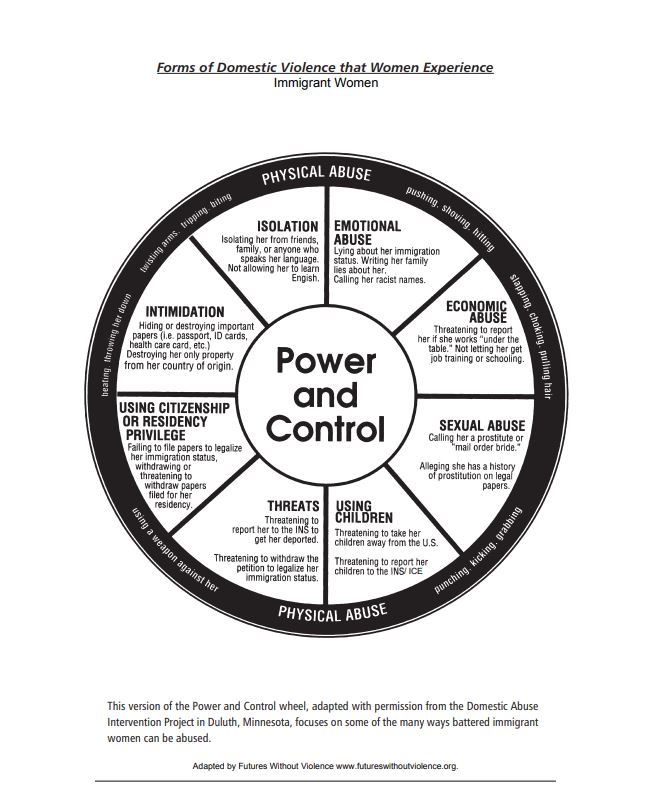
Isolation and rejection
Abusers often try to quarrel with friends and relatives and force them to leave work. In a word, to make sure that the victim is left alone, without anyone's support.
18. “These friends were given to you. Let's have a better time together.”
It is unprofitable for an abuser to have his “property” in the form of loved ones. After all, they can notice his inappropriate behavior earlier than the victim, blinded by feelings, and advise her to leave. Therefore, it is very important for an emotional abuser to stand between his half and her social circle. He will set her against friends, quarrel with relatives, directly or indirectly interfere with communication. For example, he will convince the victim that her family does not love him and unfairly offends him, or that his friends are actually jealous of her.
19. “I don't want to talk to you.”
One of the types of emotional abuse is ignorance. For some “offence”, the victim is punished with coldness and detachment.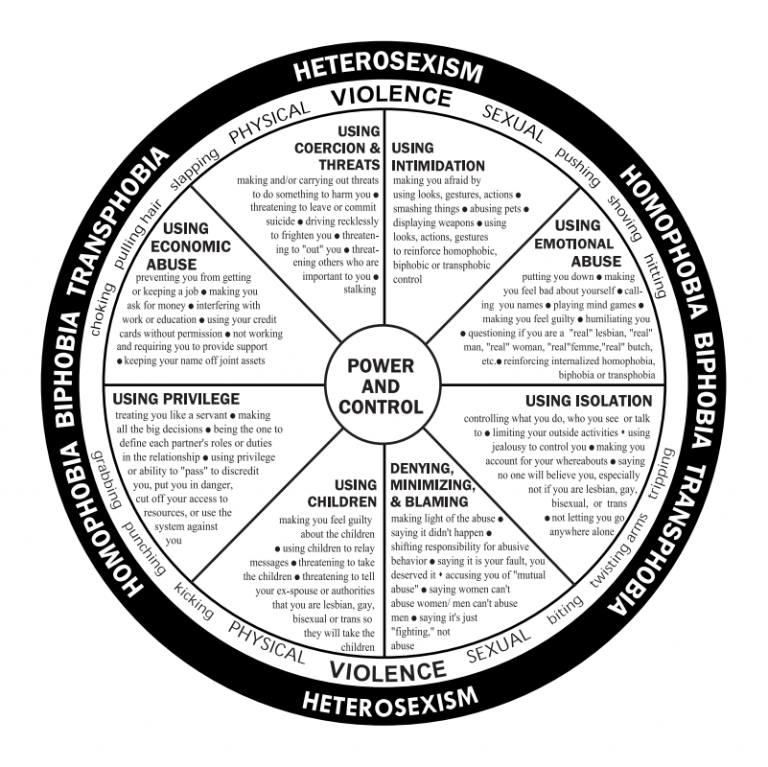 She is deliberately deprived of tenderness or sex, they stop talking to her, they literally stop noticing her, as if she is an empty place. If people aren't living together yet, the abuser may go off the radar and stop answering calls.
She is deliberately deprived of tenderness or sex, they stop talking to her, they literally stop noticing her, as if she is an empty place. If people aren't living together yet, the abuser may go off the radar and stop answering calls.
As a result, the victim experiences a very rich palette of negative feelings - from discomfort to complete despair - and after some time is ready to beg for forgiveness, just not to feel rejected. And the abuser generously forgives her in order to arrange an emotional swing for her again after some time.
20. “Are you crying? Well, okay.”
You can't expect sincere warmth and support from an abuser. If a partner is upset and going through a difficult time, it is easy for the emotional abuser to ignore it, pretend not to notice, or say that the partner has no right to feel what he feels.
Devaluation
The abuser does his best to make the victim feel insignificant and worthless.
21. “Just think! Is that a problem?"
The victim tells his partner about something important to her, shares her feelings, and he demonstrates with his whole appearance that this is nonsense.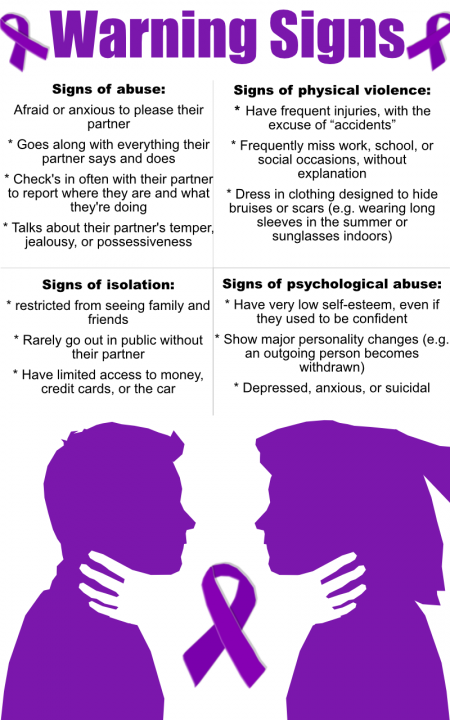 This behavior is called depreciation. It can be very hurtful and undermine your sense of self-worth.
This behavior is called depreciation. It can be very hurtful and undermine your sense of self-worth.
Devaluation can be expressed not only verbally. There are other gestures like eye-rolling, snorting and poking.
22. "You take everything too personally"
Such phrases can be a sign of gaslighting - manipulation, with the help of which they try to convince the victim of his inadequacy. Make believe that she is too vulnerable and impressionable, or even comes up with something that is not there. Typical gaslighter phrases: "You're exaggerating", "You just imagined!", "Don't be so nervous!", "Why are you making this up?".
If the abuser is pinned against the wall with irrefutable facts, he will still deny to the last that he insulted you, raised his hand, followed you or hid money. Or he will fall into a rage and declare that it was the victim who brought him to sin, which means that she herself is to blame for everything. All this is necessary to destabilize the partner and achieve his obedience.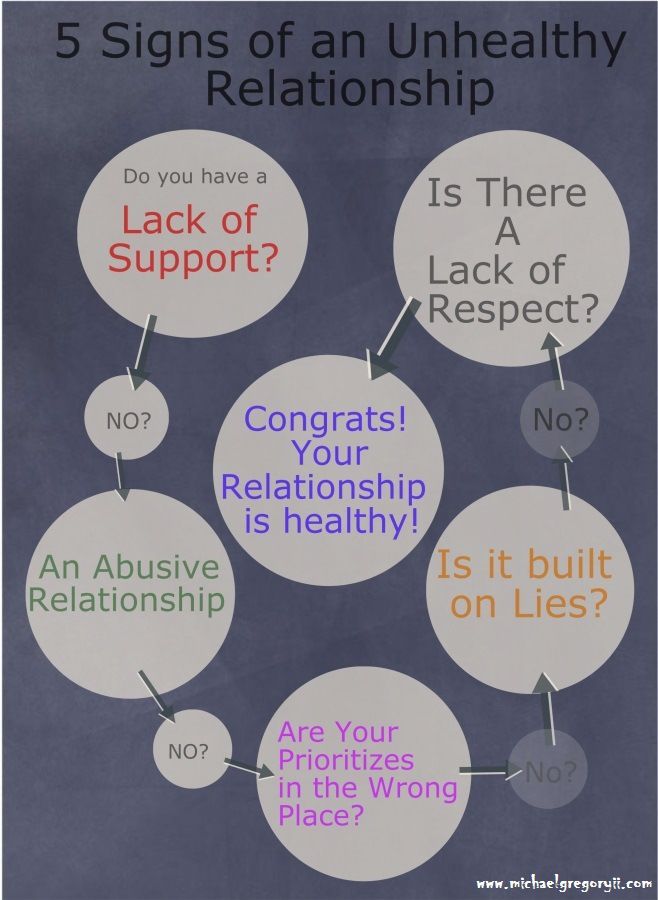
What to do if you are in a relationship with an abuser
Julia Hill
Psychologist, member of the Professional Psychotherapeutic League, blogger.
Why is it difficult to end a relationship?
2. Abuse is perceived as a concern: “Where are you going?”, “When will you be?”, “Don't communicate with her/him”.
3. The person does not notice any violence, because he found himself in a scenario familiar from childhood. The partner reminds him of a parent.
A parent can be called an abuser if he is domineering, strict, makes unbearable demands on the child, suffers from alcohol addiction, and is anxious and controlling. Love is associated with violence, and it is this scenario that lays the foundation for all future relationships. Leaving an abuser is like leaving a parent.
To rebuild the usual scenario, you have to go back in time. Because in a relationship with an abuser, a person is trying to solve children's problems.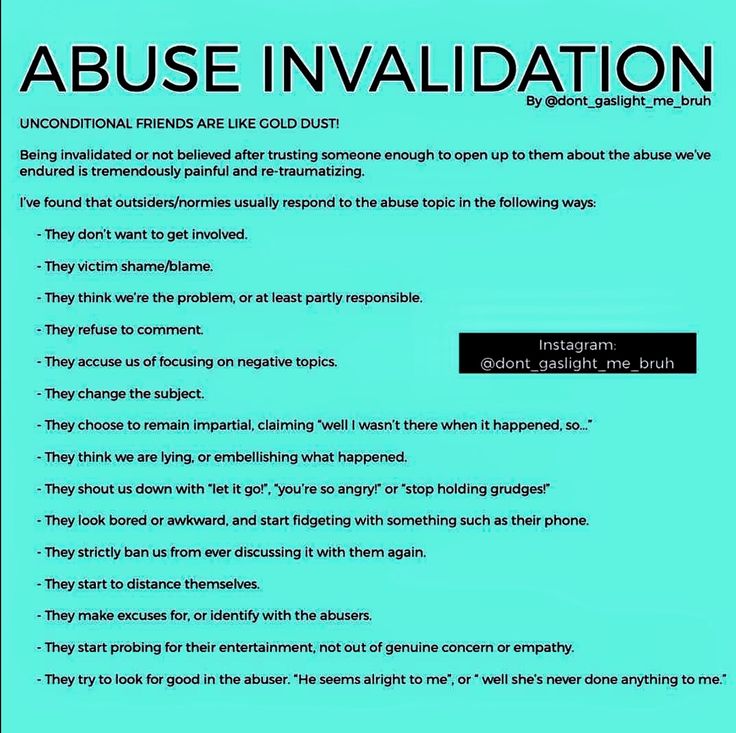 Often, after breaking one such relationship, he immediately falls into another. Just, for example, there the husband no longer drinks and beats, but is jealous and controls every step.
Often, after breaking one such relationship, he immediately falls into another. Just, for example, there the husband no longer drinks and beats, but is jealous and controls every step.
What to do
1. Consult a psychologist. This is the most effective, but not always affordable way.
2. Find in your story the one who became the source of the "love is violence" belief. Think about how interacting with someone close to you is reminiscent of your current relationship with your partner. This is not always easy to do, because the psyche is on the defensive against traumatic memories. Often people say: “There was nothing like that”, “I don’t remember”. This is fine. It means that you are not yet ready to face strong feelings.
3. Understand that a partner is a replacement for your parent. Children cannot help but love mom and dad, because they are dependent on them. The child's psyche is very adaptive and allows you to become attached even to those adults who beat and offend.
Your inner child doesn't want violence, he wants love. But in your understanding, it is either equal to violence, or comes after it.
But now you are an adult and have the right to choose whether or not to tolerate an unhealthy relationship. Try to realize that your choice of partner is not due to love, but to the desire to complete the children's scenario. Then you will see something more in the whole situation and it will be easier for you to cope with it.
4. Get rid of guilt. Sometimes it is enough just to realize it and analyze it. Guilt arises from your belief that if you are treated this way, then you deserve it, something is wrong with you and no one needs you anymore.
5. Expand your social circle, which is often limited in dealing with an abuser. Making new friends and experiences will help you realize your worth, build your self-respect, and deal with the fear of being alone that often stems from point 4.
Not all people are ready to build healthy and equal relationships. Share this article on social networks so that your friends and loved ones know who it is better to stay away from and not waste their lives and health on abusers.
Read also0038
How not to save a relationship
162,634
Relationship crisis Man and woman
It is painful to experience the destruction of relationships, and even more so to get rid of relationships. Anyone who has gone through this period is familiar with overwhelming fear, and nausea, and panic attacks from the realization that the whole life together is at stake now, which can crumble at any moment.
In such a situation, it seems that only drastic measures can save the relationship. However, the strategy of abrupt, "fateful decisions" in most cases only exacerbates the already difficult situation in the pair.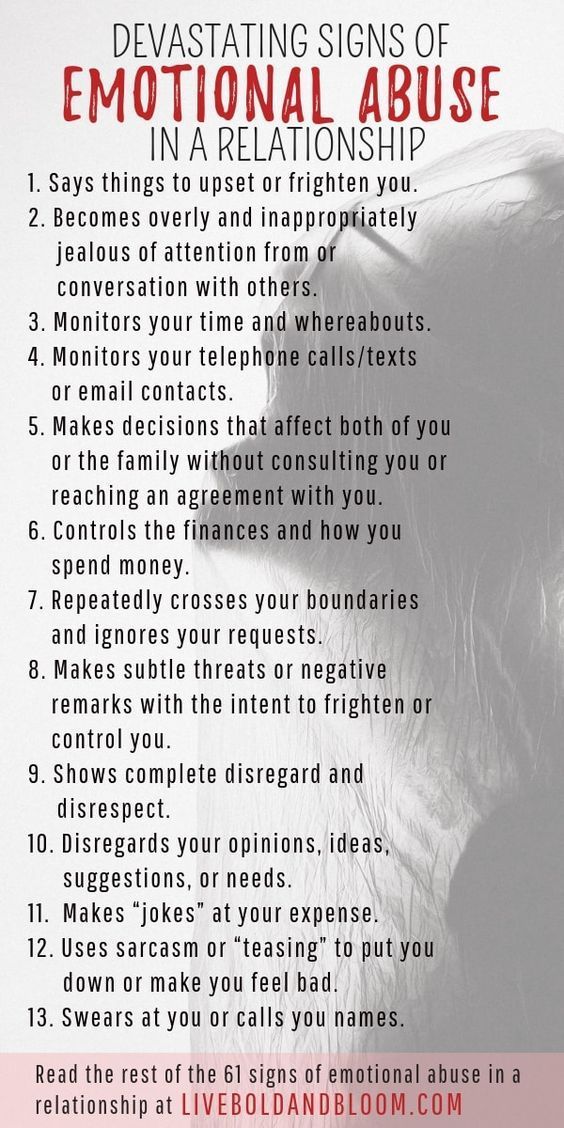
“90% of my clients come to me after such active rescue efforts,” says relationship expert and psychotherapist Andrew Marshall. - Why do categorical actions, such as the decision to live separately or find out the relationship frankly, lead to worse consequences?
Instead of trying to understand the cause of our suffering, we are in a hurry to take some drastic step, it seems to us that it will bring a quick result, but this is a delusion. Most relationships degenerate from love to hate not because of someone's terrible behavior, but because of the accumulated bad habits and inability to negotiate with each other. It takes time to solve this problem.
Pretty gestures like candlelit dinners or other ways to rekindle romantic feelings in your partner will only work for a short time. It is necessary to change your daily life, habits, otherwise the problems will grow again. And since big changes can be very difficult to achieve, partners quickly lose patience, fortitude, suspecting that the crack in the relationship will never heal.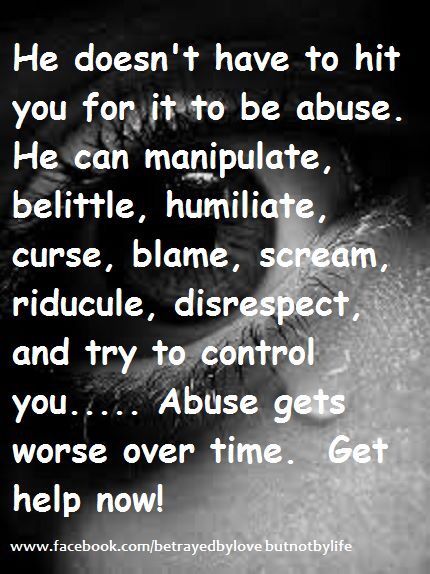 However, hard work has an easy alternative. I suggest clients look for seemingly inconspicuous but smart solutions.”
However, hard work has an easy alternative. I suggest clients look for seemingly inconspicuous but smart solutions.”
Andrew Marshall identifies five typical "life-changing" strategies that are best avoided in crisis situations.
1. Showdown
We often think: let's tell each other everything that has accumulated in our souls, it will feel better for us, and we will start all over again. Such a belief may even cause one of the partners to deliberately provoke a scandal in order to "defuse the situation." “When I tried to talk to him, Mike immediately went to his room,” Andrew Marshall quotes his client Maria, 40 years old. "As if I didn't exist!" Only an obvious quarrel managed to attract his attention, and I told him everything. It really didn't change anything."
Unfortunately, good communication cannot grow out of bad communication. In the heat of a quarrel, partners are able to say a lot of offensive things to each other and pull out all their old grievances from the past. Even if you start with the phrase “We need to talk about our relationship,” which sounds quite correct, your partner will immediately think: “What did I do again?” and tune in to defend yourself, instead of listening to you impartially.
Even if you start with the phrase “We need to talk about our relationship,” which sounds quite correct, your partner will immediately think: “What did I do again?” and tune in to defend yourself, instead of listening to you impartially.
It takes five positive messages to neutralize one negative message
A conversation will only help if both partners understand that they are in a crisis, something serious has happened, such as cheating. In a situation that both perceive as critical, a showdown looks natural and to some extent inevitable.
What to do if you are really suffering, and your partner perceives what is happening as another difficult period? State your feelings in a neutral tone, simply stating a fact, in the following three-part form: “I feel (not ‘you make me feel’, that sounds aggressive)…when you (point to the situation, not the behavior in general)…because what…” (to prevent his worst conclusions).
For example, Maria ended up saying to Mike: “I feel annoyed when you continue to read the newspaper in silence because I'm not sure that you heard me and pick up your daughter from kindergarten in time.” Proper communication allowed Maria and Mike to start a conversation about their relationship and avoid a scandal.
2. Romantic trip
It seems to us that during the holidays, away from the daily routine, we will have time to calmly discuss everything and restore the lost contact. However, the situation of forced joint pastime can turn into a disaster for distant partners.
“My husband invited me for a romantic weekend in Venice,” says Marianna, 36. — I love this city very much, but now I would prefer to be there with one of my girlfriends. I didn't feel any romance, only longing and regret, and I refused sex. About two weeks after our return, my husband filed for divorce.”
Some people think that the more they spend on a trip, the more romantic it will be, and expect a quick result.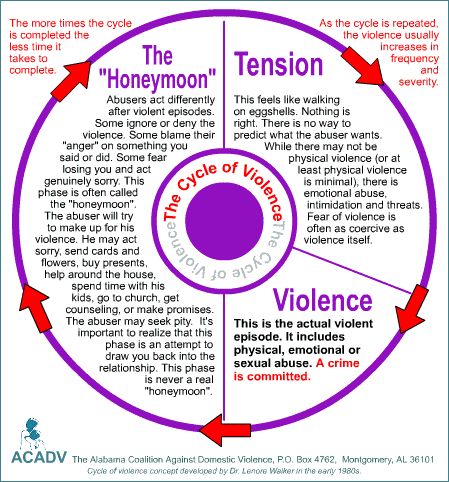 It seems to them that their significant contribution (payment for the trip) gives them a head start, and now they are waiting for reciprocal steps from their partner. Disappointment is inevitable.
It seems to them that their significant contribution (payment for the trip) gives them a head start, and now they are waiting for reciprocal steps from their partner. Disappointment is inevitable.
A romantic weekend might work, but only if you've started taking steps at home to build relationships and relieve stress. How can I do that? Every morning, tell your partner about some event of the upcoming day, and in the evening share something that happened to you. When we neglect these elementary gestures of daily attention and interest in each other, relationships become worse.
Research shows that in order to neutralize one negative message (criticism, complaint or disregard), it takes five (!) Positive messages - compliments, thanks, small favors. You will increase the number of positive messages - and the partner will respond in kind. Only against the background of such joint work can short trips be planned. Otherwise, you will build a castle in the sand.
3.
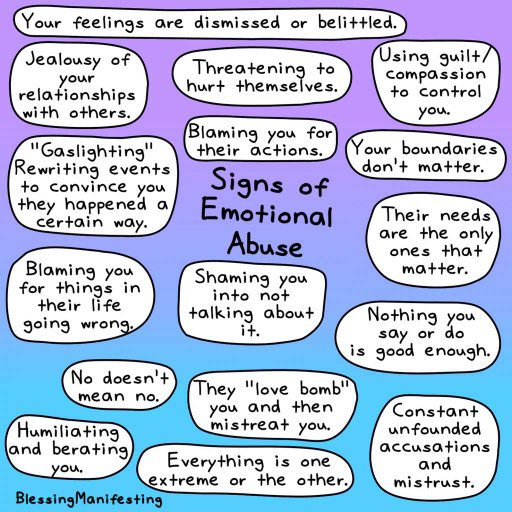 Temporary separation
Temporary separation We hope that after living separately we will start to miss each other. Unfortunately, the trip brings a private conflict into the public space, children, relatives, friends are involved in the situation, their opinions and reactions only bring additional tension to the relationship of the couple. Worse, partners begin to communicate more with third parties than with each other.
Andrew Marshall is sure that spouses should still live under the same roof, because the most important decisions are made in everyday discussions of minor disagreements, and not on artificially organized “dates”.
However, sometimes parting can still be useful. We are unhappy because something goes wrong in our own life - problems at work or with friends. And since a partner is always there, we mistakenly conclude that it is our personal life that is the cause of our troubles. In this case, the trip will put everything in its place. Even a lot of time is not required - a weekend spent separately is quite enough.
There is another easy way to look at relationships in a new way - the exercise "Imagine that ..." One example: a psychologist client Irina was angry with her boyfriend Mark for not showing her his love, and Mark complained that he it's hard to love someone who yells at him all the time. Irina had a difficult childhood, and she really needed a strong emotional connection with her partner. And so the therapist asked her to imagine: “what if” Mark is right? After all, she respects Mark, and if he insists on something like that, perhaps it has some meaning to him? The next time Irina felt lonely and unloved, she tried to say it calmly, and Mark silently hugged her, the tension disappeared.
4. The birth of a child
This also includes such radical measures as moving abroad or major repairs at home - in a word, an event that requires long joint efforts. The bet is on the fact that the common project will bring them together, and what’s really there - it will cement the couple with joint obligations.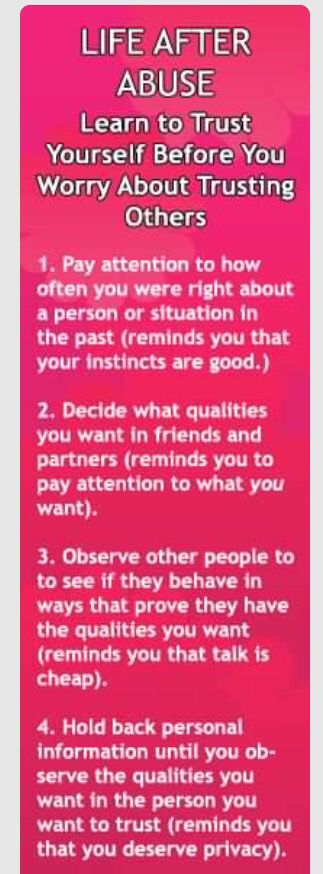
If the conflict has grown so much that it came to an ultimatum, try to break the problem into smaller parts and solve each separately
The birth of a child changes the status of the relationship from partnership to family, obviously making it difficult for one of the partners to leave. The problem with such ventures is that they simply add to the strain on an already weak relationship. For a while, you will experience the joy of having a baby or renovating a house, but the everyday problems that you put on pause will return again, aggravated with new disappointments.
Of course, cooperation brings partners together, but why don't you choose to start with something less thorough than having a baby? Such, for example, a short-term, but full of difficulties and adventure project, like a trip with tents, or a trip to a big music festival, or a yacht management course. All this will help you to become closer without undue effort - emotional, physical or financial.
5. Ultimatum
When the pain is overflowing, it seems that there is only one way to survive it - turn on the timer. We console ourselves by giving him (her) one last chance. But this desperate attempt to mark the end of torment does not change anything in the relationship.
When Kristina delivered an ultimatum to Evgeny that if nothing changes, they will divorce in a year, he was confused: “Why should it depend only on me?” At the consultation, Christina explained: “He needs to be more attentive!” To which the logical answer followed: “No matter what I do, it will not be enough!” They were at an impasse. The way out is to specify your wishes. For example, the request to "take out the trash can every evening."
Such a task works because it is measurable and regularly accomplished, in contrast to the "be careful" attitude, which has many interpretations, but, in general, there are no boundaries. But the situation will change for the better only if both partners contribute, that is, Christina should offer and, on her part, do something useful.







